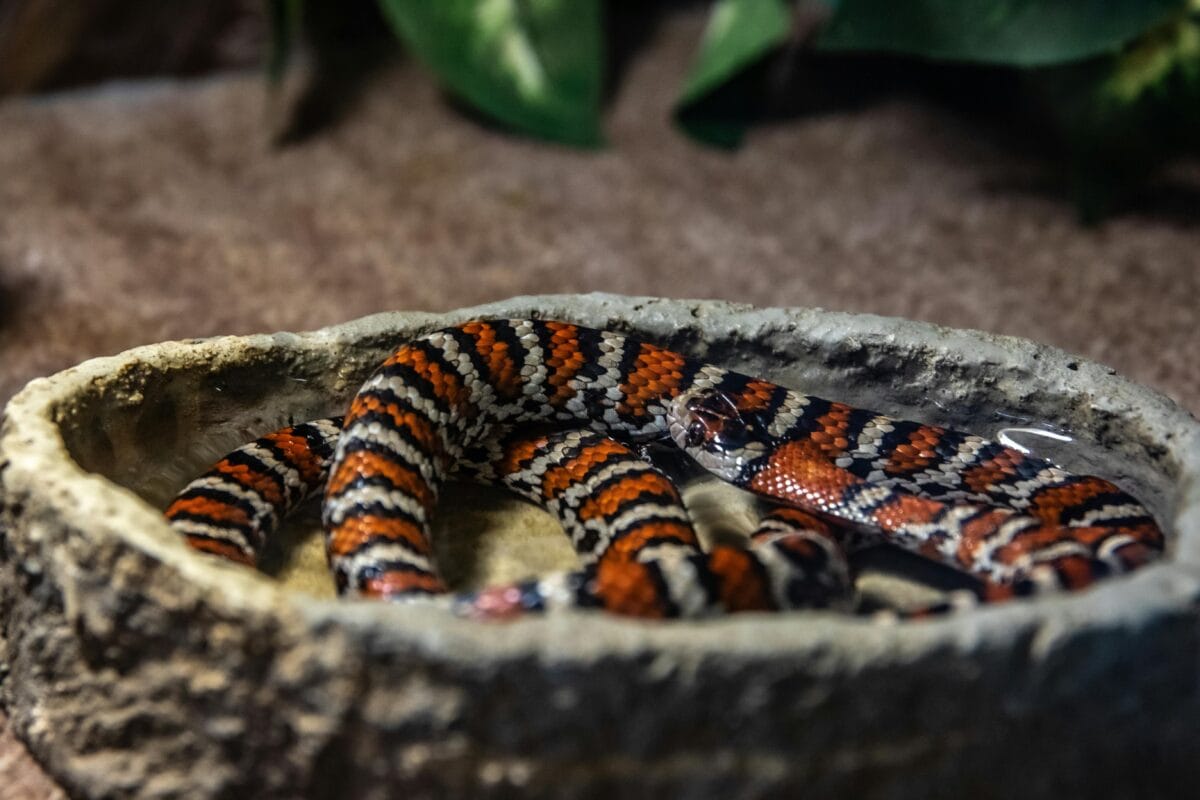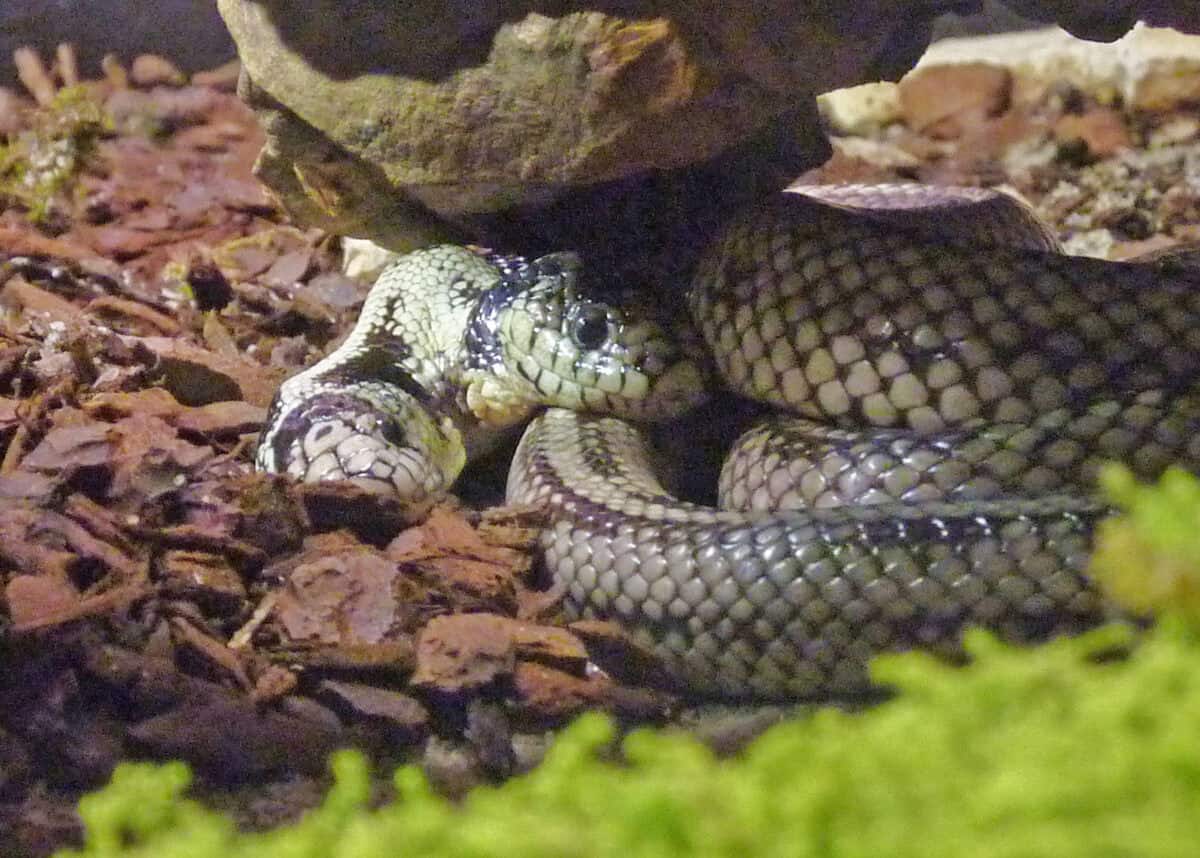In September 2024, staff at the East Bay Vivarium in Berkeley, California, were astonished to discover a rare two-headed California kingsnake among their hatchlings. This genetic anomaly, occurring in approximately one in 100,000 births, features two distinct heads sharing a single body. The snake was affectionately named Angel and Zeke, after the employees who found it. Despite initial concerns about its survival, the reptile has defied expectations, growing to over 30 centimeters (12 inches) and feeding regularly.
X-rays revealed that Angel and Zeke share vital organs. It includes the heart, lungs, and digestive system, enhancing their long-term survival chances. While coordination between the two heads can be challenging, the snake’s continued health is proof of the dedicated care provided by the Vivarium staff.
A Rare Reptilian Phenomenon

Two-headed kingsnakes, or bicephalic reptiles, are extremely rare and often face significant survival challenges. In the wild, such anomalies typically result in early mortality due to difficulties in movement and feeding. However, under human care, some have survived for extended periods. Angel and Zeke’s case is particularly noteworthy due to their shared internal systems, which reduce complications associated with dual heads.
The Vivarium’s experience with reptiles has been instrumental in ensuring the snake’s well-being. It provides a controlled environment that mitigates risks and supports its unique needs.
Social Media Sensation

After keeping Angel and Zeke’s existence private for six months, the East Bay Vivarium introduced the snake to the public via social media. The announcement quickly garnered attention, with enthusiasts and curious onlookers fascinated by the rare reptile. Videos and photos showcasing the snake’s feeding habits and interactions have been widely shared. It sparked discussions about genetic anomalies and reptile care.
The Vivarium has used this opportunity to educate the public about bicephalic animals and the responsibilities involved in caring for them.
Future Plans for Angel and Zeke
As Angel and Zeke continue to thrive, the East Bay Vivarium is considering long-term plans for the snake. If the reptile is in good health when it reaches its first birthday, options include transferring it to a zoo or museum, where it can serve as an educational ambassador.
It would allow a broader audience to learn about rare genetic conditions and the importance of specialized care for them. In the meantime, the Vivarium remains committed to providing Angel and Zeke with the best possible environment. They monitor their development and ensuring their continued well-being.
- Bride Surprises Groom With Rescued Animals at Bachelor Party - August 7, 2025
- White Deer Duo Stuns Iowa Family on Backroad Drive - August 1, 2025
- Iguana Fell and Hit Florida Man in the Face During Cold Snap - July 18, 2025

